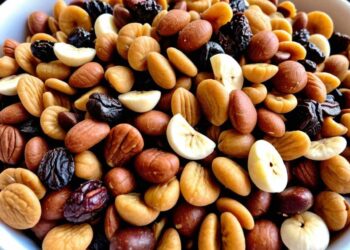Acid reflux is a common digestive issue that affects millions of people worldwide. While many factors contribute to acid reflux, dehydration is often overlooked as a potential cause. Dehydration can have a significant impact on digestive health, including the production of stomach acid and the proper function of the esophagus. Understanding how dehydration affects the digestive system can help in managing and preventing acid reflux symptoms.
The Role of Hydration in Digestion:
Water plays a crucial role in maintaining overall digestive health. It helps in breaking down food, producing saliva, and ensuring smooth movement of food through the digestive tract. When the body is well-hydrated, the stomach lining is adequately protected by mucus that prevents excessive irritation from stomach acid.
However, when the body lacks sufficient water, it can lead to various digestive issues, including acid reflux. Dehydration can reduce saliva production, slow digestion, and cause an imbalance in stomach acid levels, all of which contribute to acid reflux symptoms.
How Dehydration Contributes to Acid Reflux:
- Reduced Saliva Production: Saliva helps neutralize stomach acid and aids in digestion. When dehydrated, saliva production decreases, allowing stomach acid to build up and potentially flow back into the esophagus.
- Thickened Stomach Mucus: The stomach lining produces mucus to protect itself from harsh gastric acids. Dehydration can lead to a reduction in mucus production, increasing the risk of acid irritation and reflux.
- Slower Digestion: Water is essential for breaking down food and moving it through the digestive tract. When dehydrated, digestion slows down, causing food to remain in the stomach longer, leading to increased acid production and a higher likelihood of acid reflux.
- Esophageal Irritation: Water helps maintain the function of the lower esophageal sphincter (LES), a muscle that prevents stomach acid from flowing back into the esophagus. Dehydration can weaken the LES, allowing acid to escape and cause heartburn.
Symptoms of Acid Reflux Due to Dehydration:
If dehydration is contributing to acid reflux, you may experience:
- Heartburn or a burning sensation in the chest
- Regurgitation of stomach acid
- Dry mouth and throat irritation
- Difficulty swallowing
- Increased bloating and indigestion
Preventing Acid Reflux by Staying Hydrated:
- Drink Enough Water: Aim for at least 8 glasses of water per day, adjusting based on activity level and climate.
- Avoid Caffeinated and Sugary Drinks: Beverages like coffee, soda, and alcohol can contribute to dehydration and worsen acid reflux symptoms.
- Eat Water-Rich Foods: Incorporate fruits and vegetables with high water content, such as cucumbers, melons, and oranges, to stay hydrated.
- Maintain Proper Eating Habits: Eat smaller meals and chew food thoroughly to support digestion and prevent excessive stomach acid production.
Where Can I Get IV Fluids for Dehydration? A Complete Guide!
Can being dehydrated give you acid reflux?
Yes, dehydration can contribute to acid reflux. When the body lacks sufficient water, saliva production decreases, digestion slows down, and the protective mucus lining in the stomach may thin. This can lead to increased stomach acid buildup and a weakened lower esophageal sphincter (LES), allowing acid to flow back into the esophagus, causing reflux symptoms.
Does drinking water help acid reflux?
Yes, drinking water can help alleviate acid reflux by diluting stomach acid, washing acid back down into the stomach, and supporting proper digestion. However, drinking too much water at once, especially during meals, can sometimes worsen symptoms by putting pressure on the stomach.
What will immediately help acid reflux?
Several remedies can provide quick relief from acid reflux:
- Drinking water to help flush acid back into the stomach.
- Chewing gum to increase saliva production and neutralize acid.
- Taking an antacid to quickly reduce stomach acid levels.
- Standing or sitting upright to prevent acid from rising.
- Drinking ginger or chamomile tea to soothe the digestive tract.
What are two warning signs of dehydration?
- Dry mouth and increased thirst – A lack of saliva and a persistent dry feeling in the mouth indicate dehydration.
- Dark yellow urine – If your urine is dark and concentrated, it’s a sign that your body needs more fluids.
Conclusion
Yes, dehydration can cause acid reflux by reducing saliva production, thickening stomach mucus, slowing digestion, and weakening the esophageal sphincter. Staying properly hydrated is essential for maintaining a healthy digestive system and preventing acid reflux symptoms. By drinking enough water and making mindful dietary choices, individuals can minimize the impact of dehydration on their digestive health.










Discussion about this post